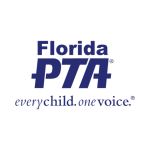Bylaws
Bylaws of the PTA determine its structure and provide specific regulations by which its affairs are governed. Bylaws are an IRS Rule to be a 501(c)(3) entity.
The bylaws define or explain the rules under which the PTA functions. They protect the group from error and guide it to efficient service.
The PTA unit should be careful not to include items that should be in the Standing Rules (guidelines for running your Board), as this makes the Bylaws too cumbersome.
A group, upon organization and before becoming a local unit of the Florida PTA, must adopt bylaws to meet its particular needs. The Florida PTA Board member will submit the original bylaws to the FPTA State Office. Upon approval, the original is kept at the State Office and an approved copy is emailed to the local unit President.
The Florida PTA has compiled a Bylaws Form that includes wording required by both Florida PTA and National PTA. Local PTAs in Florida are required to use the current January 2024 Bylaws form to be sure that all state requirements are included.
*To request a copy of the local unit Bylaws, please complete this form.
Suggestions to Local Bylaws Chairs
- Each local PTA or PTSA is a self-governing unit, with its structure and regulations prescribed in bylaws that the members have adopted.
- Bylaws may not be suspended, even by unanimous vote.
- Bylaws chairs should be informed regarding local, state and national bylaws. Extra copies may be obtained from the state office.
- Bylaws chairs should distribute copies of local unit bylaws to each board member.
- Local unit bylaws must be reviewed every three years. Be sure that you fill in all the blanks. KEEP YOUR BYLAWS SIMPLE. You do not want to have them be so specific that they keep you from operating.
- Amendments to local PTA bylaws require a 2/3 vote of the members present and voting at a general meeting provided the quorum is present and a 30-day notice has been given of the proposed changes. Send the original, approved amended bylaws to the FPTA State Office for approval.
- Revised bylaws or amendments become effective upon receipt of an approved, stamped copy from the state office.
- Bylaws are a legal document, and must be legible.
Bylaws Instructions and Forms
| Bylaws Instructions – Information on How to Update Bylaws | https://www.floridapta.org/wp-content/uploads/2025/03/8A-Bylaws-Instructions.pdf |
| January 2024 Bylaws Form | https://www.floridapta.org/wp-content/uploads/2025/03/1-28-2024-BYLAWS-LOCAL-UNIT-FILLABLE-1.pdf |
| How to Submit your Bylaws Form on Givebacks | submit bylaws via email bylaws@floridapta.org |
Standing rules are the rules an organization uses to administer its affairs under the provision of its bylaws. They set forth the procedures adopted to accomplish specific areas of PTA work.
Standing Rules are more flexible than bylaws and may be changed or suspended at any board meeting by a majority vote.
Examples:
- Setting the hour at which board meetings are to begin
- Explanation of courtesies extended to guests
- Spelling out requirements for special recognition and awards
- Maintenance of membership lists
- Determining who registers the appropriate signatures at the bank
- Outlines of PTA or Council functions
- Determination of what courtesies will be extended to board members and/or teachers when they experience illness or death.
- Setting allowances to be paid for board members who attend State and/or National conferences and conventions to cover registration, travel (airfare or mileage), hotel, and meal expenses incurred while on PTA business.
Developing Standing Rules is not a difficult task. Here are some simple steps:
- A Committee of at least three people should be appointed to prepare the Standing Rules.
- The Committee should include experienced and knowledgeable members of the PTA or Council.
- Using the bylaws as an outline, the committee should consider each provision and then formulate instructions for applying the provision. The minutes of board and general meetings, as well as the experience of the committee members can serve as resource material.
- There should be complete job descriptions for each officer and chair.
- After the committee has finalized the Standing Rules, they are presented to the board for approval by a majority vote.
- Upon approval, make sure each board member has a copy.
Standing Rules are generally not adopted when a PTA is newly organized, but are developed as the need arises. Standing Rules serve as a guide to ensure the orderly transfer of duties from one administration to the next, and are a valuable tool for the orientation of new board members.

